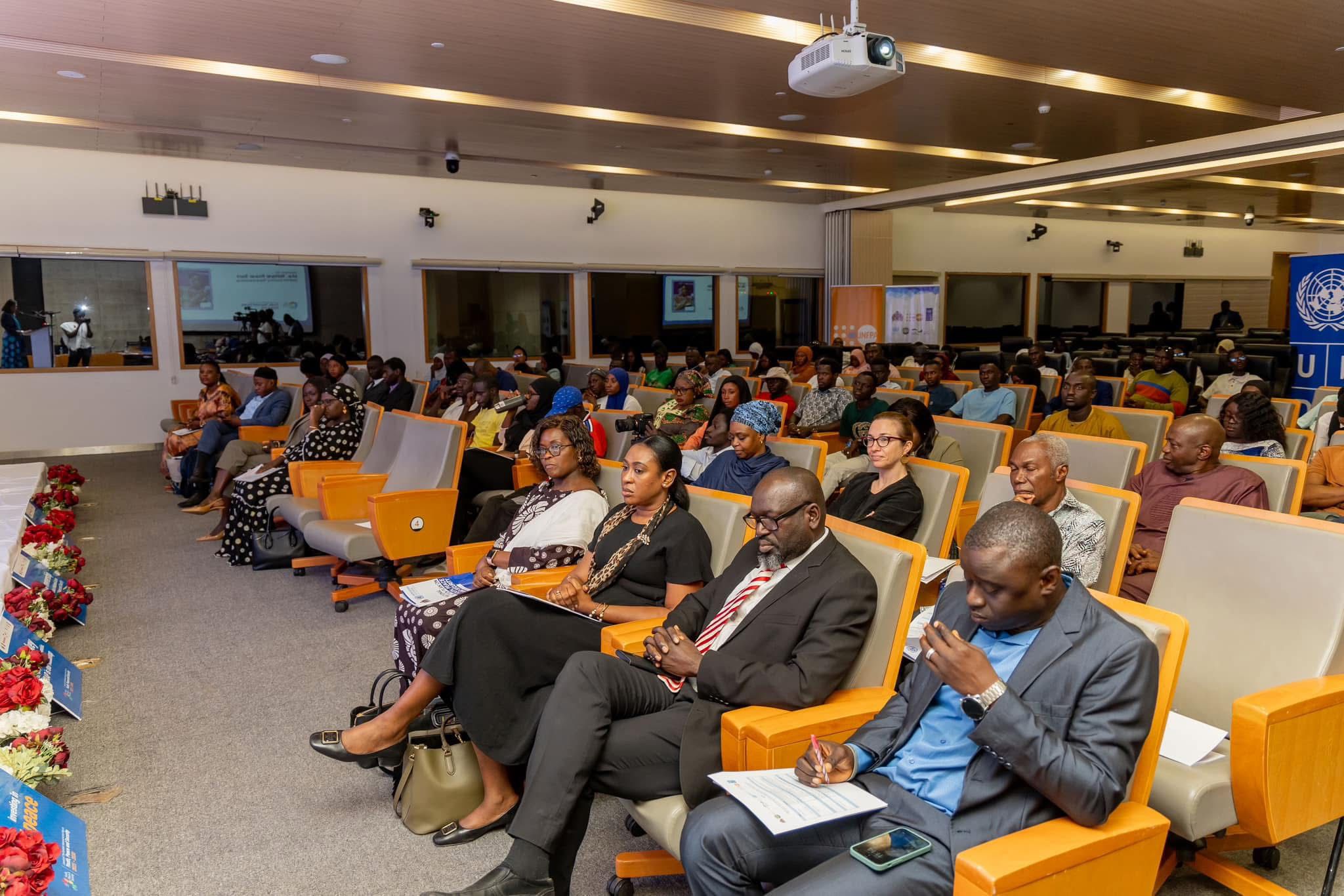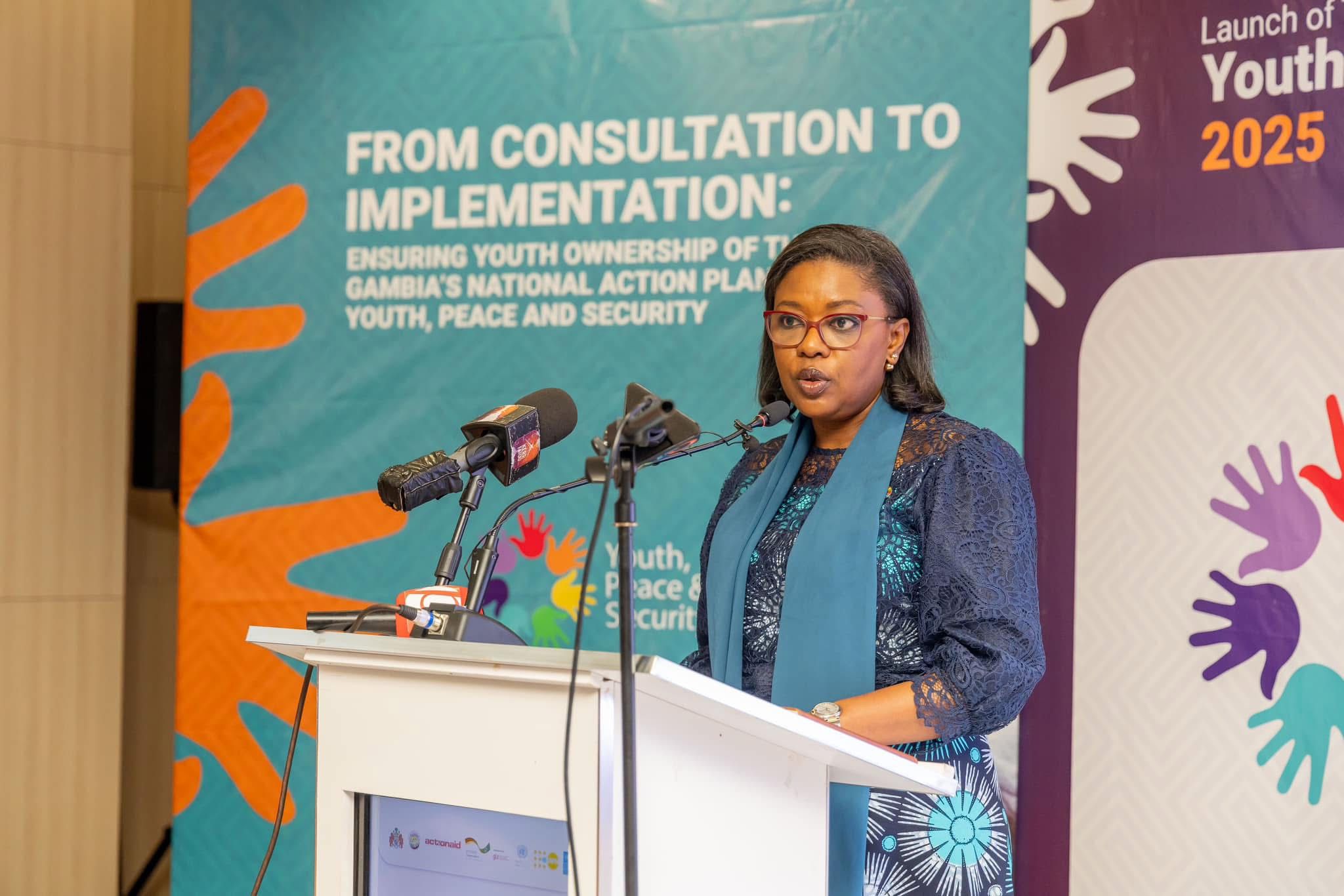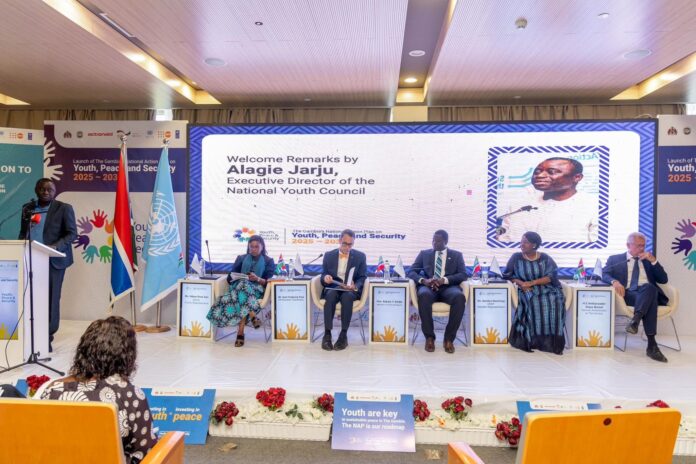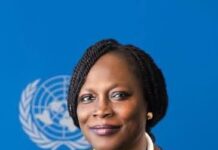By Ebrima Mbaye
The Gambia has officially launched its first-ever National Action Plan (NAP) on Youth, Peace, and Security (2025-2030), reinforcing the role of young people in fostering peace and development. The event at the Sir Dawda Kairaba Jawara International Conference Centre on February 11 brought together government officials, international partners, civil society organizations, and youth to discuss youth participation in national security and stability.
Speaking at the launch, Hon. Bakary Y. Badjie, Minister of Youth and Sports, emphasized the importance of empowering young people, who make up over 75% of The Gambia’s population. He highlighted the government’s commitment to youth-led peacebuilding initiatives and the need for financial and technical support to ensure the plan’s successful implementation.

“The hope for enduring peace, prosperity, and progress depends on empowering our youth. Too often, they are seen as victims or perpetrators of conflict, but in reality, they are partners in peacebuilding and champions of innovation,” he said.
Alagie Jarju, Executive Director of the National Youth Council (NYC), described the launch as a “defining moment” in the Gambia’s commitment to peace and security. “This is not just a milestone but a bold statement that young people are architects of a peaceful and resilient Gambia,” he said.
The launch was supported by several international partners, including the United Nations Population Fund (UNFPA), the United Nations Development Programme (UNDP), and the German government.
Ndey Rose Sarr, UNFPA Country Representative, stressed that youth participation is “not a privilege but a fundamental right.” She reiterated UNFPA’s commitment to funding and implementing the plan, ensuring that youth voices are heard at decision-making tables.

“We listened to over 2,000 young people across the country while shaping this plan. It must not become another document gathering dust—it should be a living, breathing framework driven by action and measured by results,” she said.
Similarly, Mandisa Mashologu, UNDP Resident Representative, underscored the importance of the United Nations Security Council Resolutions 2250, 2419, and 2535, which advocate for greater youth involvement in peace and security. “This plan is for the youth and by the youth. It positions young Gambians as partners for peace rather than just victims or agents of violence,” she stated.
The German Ambassador to The Gambia, Klaus Botzet, commended the country for prioritizing youth inclusion in peace efforts. He noted Germany’s long-standing partnership with civil society organizations and the African Union, which has led to significant national and continental progress.
“As we celebrate this milestone, the real work begins now. We must remain united to implement this plan effectively,” he urged.
The UN Resident Coordinator, Karl Frederick Paul, acknowledged The Gambia’s transition to democracy and the youth’s role in advocating for human rights, democracy, and freedom of expression. He called on all stakeholders—including the government, civil society, and young leaders—to move beyond commitment and ensure practical implementation of the action plan.
“The peace and stability of The Gambia depend on our ability to harness the energy, creativity, and dedication of our youth, including those with disabilities,” he said.
Hon. Badjie emphasized the need for continuous monitoring and financial support to ensure the plan’s success. “This is just the beginning. To achieve tangible results, we must join forces across government ministries, civil society, and the private sector,” he concluded.
As The Gambia embarks on this new chapter in youth empowerment, young people are eager to see how effectively the plan will translate into real opportunities for them to contribute to national peace and security.






